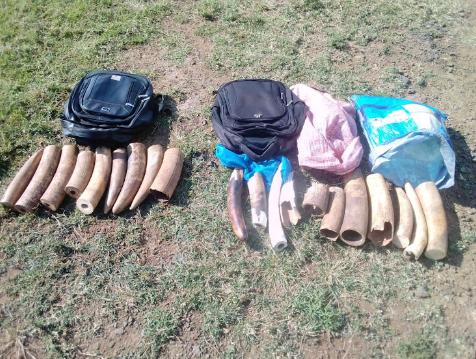It’s disturbing news that a police officer and a civilian were arrested on Sunday for trafficking elephant tusks valued at Sh2.9 million in Naivasha, Nakuru County. The arrest took place in the Longonot area around 9 am when police and Kenya Wildlife Service personnel intercepted their car carrying 20 pieces of elephant tusks weighing 29 kilograms.
The policeman was from Utheri Wa Lari police station in Naivasha, while the civilian was the alleged owner of the tusks. They are currently detained at Naivasha police cells pending arraignment on Monday, July 1, 2024, facing charges under Section 92(4) of the Wildlife Conservation Management Act 2013 for possession of wildlife trophies of endangered species.
Authorities suspect the tusks came from as many as eight elephants, likely killed in nearby parks. The demand for ivory in East Asia continues to drive this illegal trade, despite international bans. To combat poaching, Kenya has deployed advanced surveillance technologies like drones, and implemented community education, interagency cooperation, and intelligence-led operations.
These efforts were successful in achieving zero rhino poaching in Kenya in 2020, marking a significant milestone in wildlife conservation efforts. However, the continued slaughter of elephants in Africa remains a critical issue, with an estimated 20,000 elephants killed annually for their ivory.
On April 30, 2016, Kenya set ablaze 105 tonnes of elephant ivory and 1.35 tonnes of rhino horn.
Former President Uhuru Kenyatta led world leaders and conservationists in burning the remains of 6,500 elephants and 450 rhinos killed for their tusks and horns.



